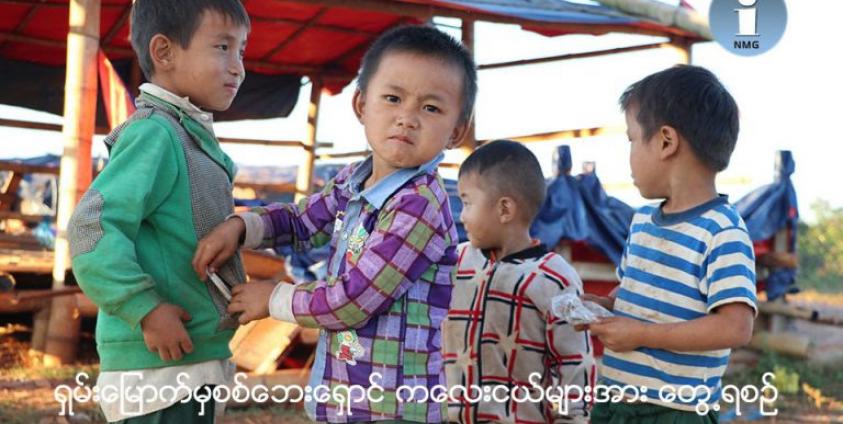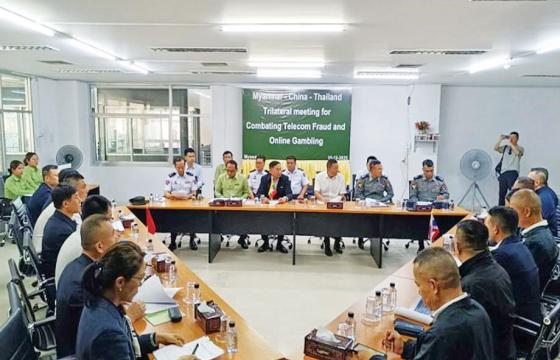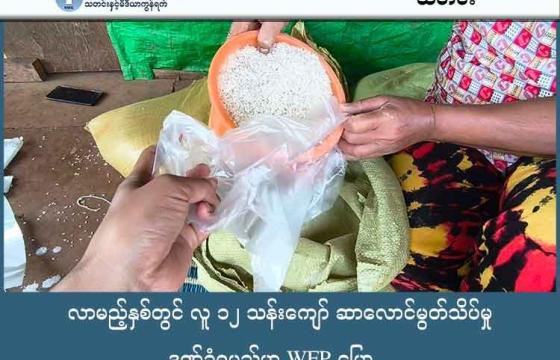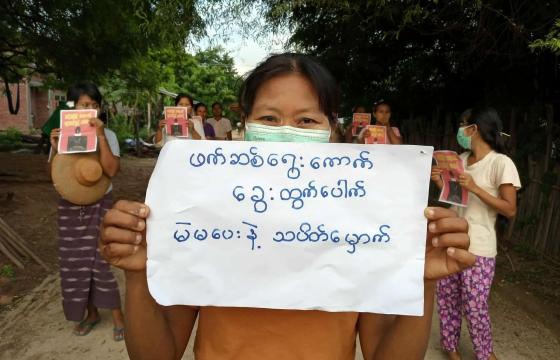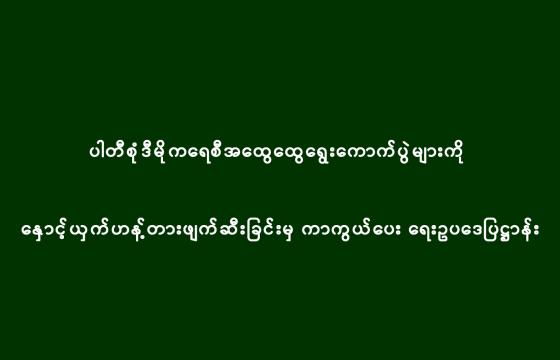Civil society organizations, political parties, and armed groups have said that armed conflict is increasing in northern Shan State, and has been on the rise since the signing of the Nationwide Ceasefire Agreement (NCA) in 2015.
Tai Youth Network spokesperson Sai Naw Khur pointed to frequent patterns of displacement and detainment, as well as physical abuse, as being among the primary problems facing civilians in the region.
“There are many clashes in Namkham, Namtu, Hsipaw, Kyaukme and many other places in northern Shan State,” he told NMG. “Because of these clashes, local people often flee from their homes. Sometimes people flee for a week to 10 days, then they come back again. Locals cannot work well on their farms if there are clashes or tensions between the Burma Army and ethnic armed groups.”
Sai Naw Khur said that it is not uncommon for people to be questioned by armed groups active in the region, which can involve arrests and beatings.
“This is a huge human rights abuse,” he said, adding that “almost all” the armed organizations were guilty of this to some degree.
Ta’ang National Party secretary Aung Min, based in Lashio, traces the increase in clashes and abuses to the signing of the NCA three years ago by a handful of ethnic armed groups, the government, and the military.
“Conflicts have escalated since the Burma Army launched ‘clearance operations’ for regional security. On the other hand, ethnic armed organizations have also defended themselves,” he explained. “Local people have suffered a lot from these conflicts…this suffering is a consequence of the suspicion [placed on them],” he added.
Clashes Continue Into November
The Ta’ang National Liberation Army (TNLA)—which is not signatory to the NCA—has reported that it has engaged in clashes with NCA signatory the Restoration Council of Shan State/Shan State Army (RCSS/SSA) in Hsipaw Township on Wednesday and in Kyaukme’s Mong Ngao sub-township on Tuesday.
Additionally, according to Sai Naw Khur, more than 500 Hsipaw Township locals fled from their homes because of clashes between the non-signatory Shan State Progress Party/Shan State Army (SSPP/SSA) and the Burma Army on Tuesday. The fighting occurred near Ner Makhaw and Ner Lawt villages and lasted about half an hour, he said.
“The sound of heavy weapons firing was heard from three to four miles away,” Sai Naw Khur explained. That evening, hundreds of villagers arrived at multiple area monasteries and villages seeking shelter. They have been provided blankets, clothing, and food by other locals.
Clashes between the Shan armed groups RCSS and SSPP in Hsipaw Township displaced more than 1,000 people in early November.
The fighting coincides with the annual harvest, but the battles have left farmers unable to tend to their crops. One local told NMG that the frequency and intensity of clashes has meant that people have had had to abandon their fields at this crucial time.
Women’s organizations have said that the fighting in northern Shan State has disproportionately affected children, women and the elderly.
SWAN executive director Nang Hurng pointed to education as being an issue of serious concern, with so many children having to flee from their homes.
“The current academic year is almost complete,” she said. “Children will have to take exams soon but the lessons have not yet finished. If students lose their study opportunities, they won’t pass their high school exams. The war must be stopped. People are really suffering from armed conflict.”
Northern Shan State has multiple armies active in the area, including the Burmese military, the RCSS/SSA, SSPP/SSA TNLA, the Kachin Independence Army, and various militias.

